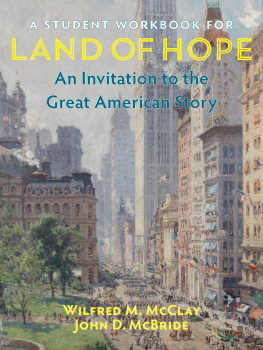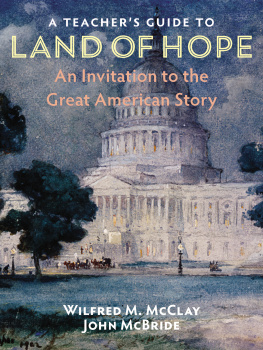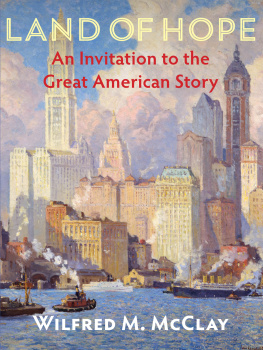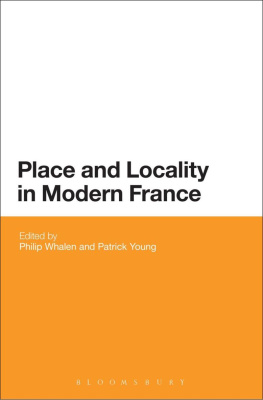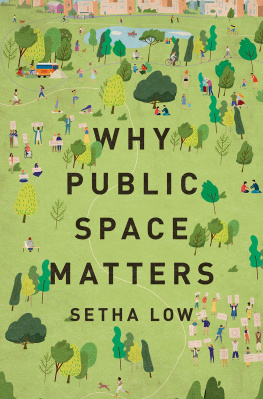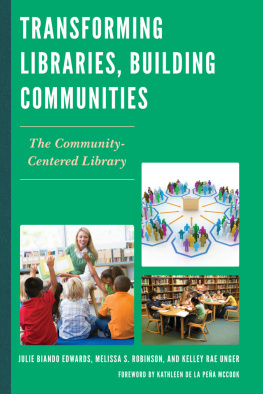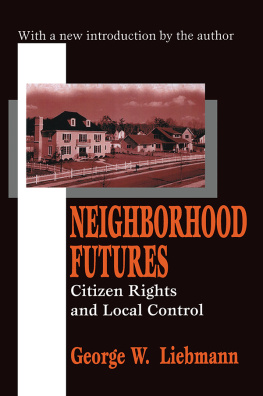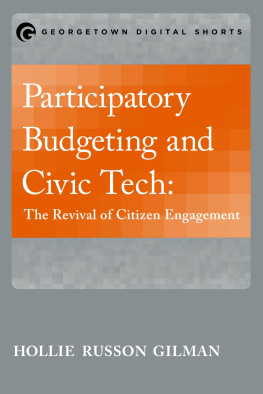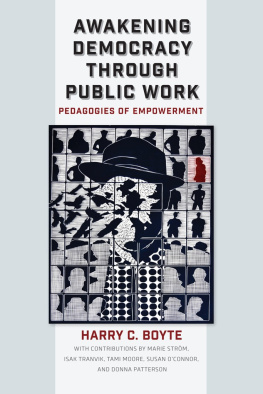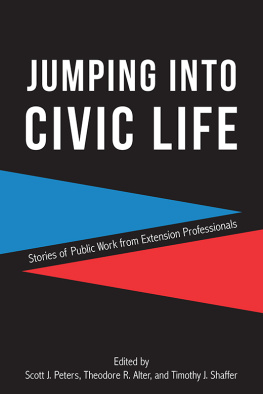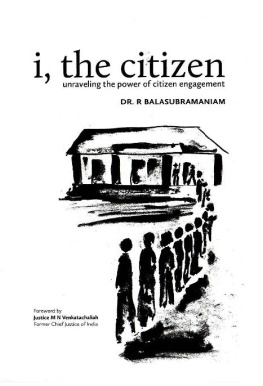WHY PLACE MATTERS
NEW ATLANTIS BOOKS
Adam Keiper, Series Editor
PREVIOUS VOLUMES:
Merchants of Despair:
Radical Environmentalists, Criminal Pseudo-Scientists, and the Fatal Cult of Antihumanism
Robert Zubrin
Neither Beast nor God:
The Dignity of the Human Person
Gilbert Meilaender
Imagining the Future:
Science and American Democracy
Yuval Levin
In the Shadow of Progress:
Being Human in the Age of Technology
Eric Cohen
www.newatlantisbooks.com



2014 by Wilfred M. McClay and Ted V. McAllister
All rights reserved. No part of this publication may be reproduced, stored in a retrieval system, or transmitted, in any form or by any means, electronic, mechanical, photocopying, recording, or otherwise, without the prior written permission of Encounter Books, 900 Broadway, Suite 601, New York, New York, 10003.
Copyright acknowledgements appear on p. 297.
First American edition published in 2014 by Encounter Books, an activity of Encounter for Culture and Education, Inc., a nonprofit, tax exempt corporation.
Encounter Books website address: www.encounterbooks.com
The paper used in this publication meets the minimum requirements of ANSI / NISO Z39.481992 (R 1997) (Permanence of Paper).
FIRST AMERICAN EDITION
LIBRARY OF CONGRESS CATALOGING-IN-PUBLICATION DATA
Why place matters : geography, identity, and civic life in modern America / by Wilfred M. McClay and Ted V. McAllister, [editors]
pages cm
Includes bibliographical references and index.
ISBN 978-1-59403-718-4 (ebook)
1. Geographical perceptionUnited States. 2. Place attachmentUnited States. 3. National characteristics, American. 4. United StatesPolitics and government. 5. United StatesSocial life and customs. I. McClay, Wilfred M.
G71.5.W58 2014
917.3dc23
2013009210
CONTENTS
TO PAUL K. CONKIN,
HISTORIAN AND TEACHER
EXTRAORDINAIRE
AND TO THE MEMORY OF
HENRY HOPE REED,
TIRELESS WARRIOR FOR
THE CAUSE OF URBAN BEAUTY

TO SAY THAT place matters is, to some extent, to swim against the principal currents of our times. The globalization of commerce, and the technologies of communication and transportation that have made that globalization possible, make it so easy to move people and products, ideas and styles, that it sometimes seems as if the world is in fact becoming placeless. The tenuous and fungible nature of place in our times is as evident as the phone vibrating in our hands: when we answer, our first question to the caller is likely to be, Where are you? and the answer the caller gives us could plausibly be almost anyplace from Manhattan to Mumbai to the house next door. What more powerful evidence is there that place doesnt matter anymore? Isnt stressing the importance of place in our lives just a symptom of backward-looking nostalgia?
But place does still matter. Whether we like it or not, we are corporeal beings, grounded in the particular, in the finite conditions of our embodiment, our creatureliness. So is everything else, even if we sometimes forget the facts of the matter, or get caught up in the power of our own digital illusions. The cloud in which untold billions of digital interactions are occurring as you are reading this is not a cloud in the sky; it is the illusion of a cloud, a fantasy, a metaphor whose plausibility is grounded in and sustained by an army of servers, ungainly looking physical objects that are very much sitting right here on the ground, vulnerable to hurricanes, tornadoes, fires, and other calamities. In losing place entirely, and succumbing to the idea that a website can be a place and that digital relationships can substitute for friends and family, we risk forgetting this reality of our embodiment, risk losing the basis for healthy and resilient individual identity, and risk forfeiting the needed preconditions for the cultivation of public virtues. For one cannot be a citizen without being a citizen of some place in particular; one cannot be a citizen of a website, or a motel. And if these dangers are real and present ones, surely we are not helpless to address them. Surely there are ways that intelligent people, and intelligent public policy, can begin to address them constructively, by means of reasonable and democratic innovations.
The essays in Why Place Matters have in common a view that the recovery of place in our personal and public lives is a matter of central importance, but the editors have not otherwise sought to impose a party line. Indeed, we have sought to encourage debate rather than skirt it; hence the range of views represented is wide, often suggesting dramatically different paths forward.
For example, the reader will encounter architect Philip Besss humane and philosophically grounded urbanism, which seeks to conceptualize the ideal city as a carefully planned vehicle for the fulfillment of the good life; poet Dana Gioias exuberant celebration of creative, diverse, and disorderly Los Angeles as far more of a place than it gets credit for being; philosopher Roger Scrutons call for aesthetic constraints to make city centers more attractive and therefore livable; and architectural historian Witold Rybczynskis wise admonition that the city with a healthy sense of place is one that prudently respects the promptings of the market and the choices of consumers, while also honoring the momentum of history by remembering that adaptation... is always better than invention and that cities should not imagine they ever have the power to start from scratch.
Similarly, the subject of cosmopolitanism, as a principled enemy to the centrality of place, is treated differently by different authors. Political theorist Mark T. Mitchell attacks cosmopolitanism frontally, as a betrayal of the most fundamental human longings, and seeks to formulate a humane localism that will be free of the fear of the other. The historian and critic Russell Jacoby, while much friendlier to cosmopolitanism in many respects, points to the ways in which it promises far more than it delivers, and how, by inducing a placelessness that leads to resentment and violence, it may ironically serve to foster the very particularistic hatreds that it was created to escape. And for the eminent geographer Yi-Fu Tuan, a Chinese immigrant scholar who rose to the top of his profession as a brilliant student of the structure and phenomenology of place, there is a ceaseless tension between local and cosmopolitan values, between hearth and cosmosa tension that is inherent and not to be resolved in favor of one or the other. Even such a nuanced position as Tuans also, in its own way, affirms the enduring importance of the particular and the local.
Next page

